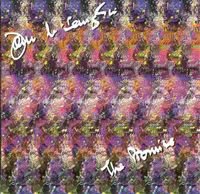por entre os sons da música, ao ouvido como a uma porta que ficou entreaberta... (virgilio ferreira)
20060228
20060227
20060225
Leningrad Cowboys - GLOBAL BALALIKA SHOW (2003)
 (AUDIO tracks from the DVD)
(AUDIO tracks from the DVD)Finlândia - Helsinquia - Senate Square, o espectáculo de consagração dos LENINGRAD COWBOYS com RED ARMY AIR FORCE ENSEMBLE, acompanhados pelos seus convidados Angelique Kidjo (Benin), “Coto" Antomarchi Padilla Juan de la Gruz (Cuba), Wild Magnolias, Big Chief "Bo" Dollis (New Orleans, USA), Johanna Rusanen, Tulikansa, Yamar Thiam & Galaxy Drums (Senegal/Finland), Kirsi Tykkyläinen, Figurantes de Cuba. Aqui fica o Áudio do DVD de um SHOW espectacular mais quatro faixas de bónus.
"The Leningrad Cowboys music has proven to have an incredible hypnotizing effect on the listeners. The male listeners are divided into two groups - those who have listened over 10 times to the song in question and have experienced The Incredible Leningrad Cowboys Show have an immediate need for more Vodka. Those who have not baptised themselves yet in the invigorating Cowboys lifestyle have an immediate need for more Beer. The female listeners have an even more amazing out-of-this-world-experience: They have an immediate need to go cruising with their tractors - but only with those wearing and living the Cowboy lifestyle. Thus Leningrad Cowboys music is extremely good for private parties, but with larger gatherings one should be extremely careful not to play the music too early in the evening. Several so-called music professionals and critics have tried to analyse the music - but have always failed miserably!
Originally created as a label under which another Finnish band, the Sleepy Sleepers, could release their English songs and concert extravaganzas, the joke acquired a life on its own. Since its foundation in the late 1980s, the group has appeared in three films by Aki Kaurismäki (Leningrad Cowboys Go America, Leningrad Cowboys Meet Moses and Total Balalaika Show) and also enjoys some success worldwide. Currently, the band has eleven Cowboys and two Leningrad Ladies. The songs, always somewhat influenced by polka and progressive rock, have themes such as vodka, tractors, rockets and Genghis Khan, not to mention folkloric Russian songs, rock and roll ballads and covers from bands as diverse as The Beatles, Led Zeppelin and Lynyrd Skynyrd, all with lots of humour.
0 1 2 3 4 $ - post by: mulungo - @
Black hole sun, American woman, Sweet home Chicago, Like a virgin, Land of 1000 dances, Those were the days, Bad, Easy livin’, Stairway to heaven, Pennies from heaven, Rälläkkä guitar skeleton show, That’s the way I wanna rock ‘n’ roll, Afirika, Americano, No woman no cry, Pretty fly (for a white guy), Papa was a rolling stone, La cucaracha, Kashmir, El cuarto de tula, Tumba, Life is a carnival, Eloise, Rockin’ the free world, Coochie Molly, Ghostbusters + 4 bónus.
Labels:
rock
20060224
20060223
20060222
20060221
20060220
20060218
Carlos do Carmo - AO VIVO NO OLYMPIA (1980)
 A Voz do Fado no masculino na mítica sala Parisiense cantando Ary dos Santos, Paulo de Carvalho, Fernando Tordo, Francisco Viana, José Luis Tinoco, José Afonso.
A Voz do Fado no masculino na mítica sala Parisiense cantando Ary dos Santos, Paulo de Carvalho, Fernando Tordo, Francisco Viana, José Luis Tinoco, José Afonso."The son of fado (Portuguese folk songs) singer and nightclub owner, Lucilia Do Carmo, Carlos Do Carmo (born: Carlos Manuel de Ascencao Almeida) has established his own reputation as a passionate singer of Portuguese folk songs. Although he dreamed of joining the merchant marines, becoming a lawyer and managing a hotel in Switzerland, Do Carmo joined his mother to run her club, the Adega De Lucilia, later renamed the Faia, following his father's death in 1962. Encouraged by his friends' response to his singing, Do Carmo soon began to perform at the club. While fado remains at the core of his music, Do Carmo has used Frank Sinatra-style pop balladry and Brazilian bossa nova to give his music its distinct flavor. His hits include "Barro Alto/High Quarter", "Gaivota/Gull", "Canoas Do Tejo/Canoes Of The Tejo", "Os Putos/The Putos", "Lisboa Menina/Lisbon Girl", "Moca/Young Women" and Estrela Da Tarde/Star Of The Afternoon."
0 1 2 - post by: mulungo - @
Labels:
fado
20060217
20060216
20060215
Clint Eastwood - AFTER HOURS (1997)
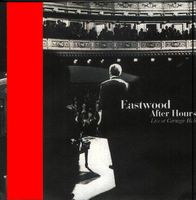 Uma noite no Carnegie Hall com a participação dos pianistas Kenny Barron e Barry Harris, as vozes Jimmy Scott e Kevin Mahogany, o pianista Jay McShann, o violinista Claude "Fiddler" Williams, os trompetes de Jon Faddis e Roy Hargrove. Contudo, as estrêlas terão sido os saxofonistas Joshua Redman, James Rivers, James Carter e Flip Phillips, Charles McPherson e James Moody e ainda Carter e Redman. O fecho com "After Hours" (com quase todos os acima mencionados) começa com Clint Eastwood ao piano.
Uma noite no Carnegie Hall com a participação dos pianistas Kenny Barron e Barry Harris, as vozes Jimmy Scott e Kevin Mahogany, o pianista Jay McShann, o violinista Claude "Fiddler" Williams, os trompetes de Jon Faddis e Roy Hargrove. Contudo, as estrêlas terão sido os saxofonistas Joshua Redman, James Rivers, James Carter e Flip Phillips, Charles McPherson e James Moody e ainda Carter e Redman. O fecho com "After Hours" (com quase todos os acima mencionados) começa com Clint Eastwood ao piano.0 1 2 3 - post by: mulungo - @
Labels:
jazz
20060214
20060213
20060212
Lourenço Marques - Estação B (1974)
 LM RADIO
LM RADIOPara aqueles que como eu passavam os dias imersos nos hits do Reino Unido, USA e outras estações "progressitas" do velho continente aqui ficam os "jingles" mais comuns da estação que animava a malta em Lourenço Marques. E, como é bom "matar saudades" aí ficam outros links que nos ligam a esse tempo.
LM RADIO Museum
The Pumamouse Website Presents
Charting The Charts
"An intriguing site (LM RADIO MUSEUM) dedicated to, arguably, the greatest music radio station Southern Africa has ever been blessed with. Get along for a large dollop of nostalgia and good times...
20060211
20060210
VA - JAZZ ON CINEMA (1999)
 Temas que "fizeram" cinema. Feche os olhos e venha ver um filme ou, como dizia o outro: "let look at the trailer"
Temas que "fizeram" cinema. Feche os olhos e venha ver um filme ou, como dizia o outro: "let look at the trailer""As good as it gets, New York New York, Casablanca, Leaving Las Vegas, When Harry met Sally, The fabulous Baker boys, Sharkey´s machine, Baghda cafe, 'Round midnight, Swing kids, Zabriskie point, Sounds of music, Orfeu negro, Mr. Holland's opus, Wizard of Oz, Fce/off, West side story, Star trek, L.A. confidential, Evangelion, Love is a many splendored thing, French kiss, Porgy & Bess, Always, Breakfast at Tiffany´s, Conspiracy theory, Coneheads, The deer hunter, Summertime, The sandpipper, When a man loves a woman, Play misty for me, Manhattan murder mystery, Cocktail, 007 series, Last tango in Paris and Mission impossible".
0 1 2 3 4 - post by: mulungo - @
0 1 2 3 4 - post by: mulungo - @
Labels:
jazz
20060209
20060208
20060207
20060206
John Coltrane - PLAYS THE BLUES (1960)
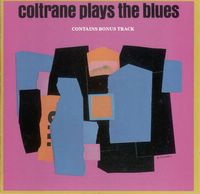 Embora se mencionem os Blues, o conteúdo é mesmo Jazz ainda que numa sensibilidade mais "blue"
Embora se mencionem os Blues, o conteúdo é mesmo Jazz ainda que numa sensibilidade mais "blue"0 1 2 - post by: mulungo - @
Labels:
jazz,
jazz hard-bop,
jazz post-bop
20060204
Amália Rodrigues - COMPILAÇÃO (2006)
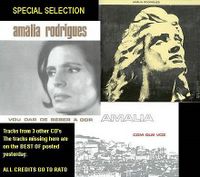 Compilação de temas dos albúns Asas Fechadas (1962), Vou Dar De Beber À Dor (1969), Com Que Voz (1970)
Compilação de temas dos albúns Asas Fechadas (1962), Vou Dar De Beber À Dor (1969), Com Que Voz (1970)Portuguese singer Amália Rodrigues possesses one of the most dynamic, emotionally honest voices in the world of music. The 1987 set Com Que Voz presents her in a near-perfect setting, with simply a pair of guitars to nimbly frame her tales of love lost and general tragedy (thankfully, the lyrics are printed in English as well). Her intonation and delivery may strike the new listener as just a bit strange, but her performances are excellent. The nimble guitar playing on "Maria Lisboa" makes it one of the highlights. John Bush
NB: the tracks missing in this 3 rar files, are already on yesterday post - Amália's "Best Off". We hope you love the Queen of Fado.
0 1 2 - post by: mulungo - @
Labels:
fado
20060203
Amália Rodrigues - ESTRANHA FORMA DE VIDA (1995)

A voz de Portugal numa compilação que mostra uma parte do melhor de Amália.
"The unrivaled queen of the Portuguese fado, singer Amália Rodrigues was born in Lisbon's Alfama district in 1920; one of ten children, she was abandoned by her mother at the age of one and raised by her grandmother, spending her formative years selling produce on the streets and working as a seamstress. Against the wishes of her family, as a teen Rodrigues performed as a tango dancer, and at 19 she made her professional singing debut alongside her sister, Celeste, at the fashionable Lisbon nightspot Retiro da Severa. Within a year she was a star, selling out clubs every night; in 1944, she traveled to Brazil, drawing huge crowds during her stay at the Copacabana Casino and later returning to Rio de Janeiro to make her first recordings. Rodrigues not only popularized the fado throughout South America, she reinvented it — brilliantly fusing the urban and rural styles of Lisbon and Coimbra, she also sought out material that moved far beyond the traditional tales of failed romance to explore instead the deepest crises of the soul and spirit, delivering performances unmatched in their fatalistic power and haunting beauty. Because Rodrigues' manager, José de Melo, believed her native fans would stop attending her live appearances if they could buy her recordings, she did not enter a Portuguese recording studio until 1951, issuing a handful of sides on the Melodia label before moving to the Valentim de Carvalho imprint the following year. In the wake of World War II she began touring outside of South America, and scored an international hit in 1956 with "Coimbra," recorded live at Paris' Olympia Theatre. In all, Rodrigues recorded upwards of 170 albums and even appeared in a number of feature films, retaining her drawing power even after the popularity of fado itself began to dissipate during the 1960s. She continued touring well past her 70th birthday, entering retirement only after undergoing surgery; she spent the final years of her life as a recluse, making her final public appearance at the opening of Lisbon's Expo in 1998. Rodrigues died October 6, 1999, at the age of 79; upon receiving news of her passing, Portuguese Prime Minister Antonio Guterres ordered three days of national mourning, declaring her "the Voice of Portugal". Jason Ankeny
0 1 2 3 - post by: mulungo - @
0 1 2 3 - post by: mulungo - @
Labels:
fado
20060202
Fausto - POR ESTE RIO ACIMA (1982)
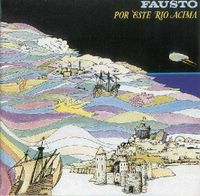 Do melhor que há na Musica Popular Portuguesa de Qualidade.
Do melhor que há na Musica Popular Portuguesa de Qualidade."Very few artists can express a feeling as vague and ambiguous as national identity. Writers have done it many times throughout the history of literature but only the likes of Wagner or Grieg have managed to fill their music with a certain patriotic touch. In fact, I can't think of any Portuguese artist in our folk-music spectrum that manages to capture the epic tones of some of our literary works (“Os Lusíadas”, for example), except for Fausto. “Por Este Rio Acima (As Viagens De Fernão Mendes Pinto)” is the musical version of a famous book written by Fernão Mendes Pinto, a Portuguese navigator, which serves as a diary to his voyages to India and is somewhat of a priceless historical document that recaptures the feeling of greatness of those times. In his musical approach, Fausto turns to traditional instruments such as flutes, acoustic and Portuguese guitars, percussion and many others, but he also explores the contribution of synthesizers, strings and choirs, which successfully expand the musical scope and add a certain depth to the more epic tracks. The track listing follows a chronological order, to achieve maximum resemblance to the order of events as presented in the mentioned book, and it begins with the description of the ship's sailing from Lisbon with “E O Barco Vai De Saída”, a very lively and hope filled song. Then comes “Porque Não Me Vês”, in a more sorrowful vein, that marks the appearance of a certain melancholic aura that manages to make its way into large sections of the record. But, the brilliantly epic journeys through war, misery, shipwrecks and fear pompously arise amidst the melodic and grandiose arrangements and choirs, conjuring a perfect symbiosis between the music and the lyrics, which are nothing short of pure genius. The war chants, emphasized by the majesty of the coral and orchestral passages, speak of pirates, death, mutilation, doom and uncertainty and a deep love for the sea and everything that relates to it, as is it very clear in Fausto's unique vocal delivery, that ranges from emotive to narrator-like singing, adding colour and smoothness, as well as variety to the tracks. In fact, were it not for his great voice and half the album would be deprived of appeal, due to a slight repetition of ideas in some songs. And while his voice leads most of the more melancholic interludes, the choir does a magnificent job in creating a story-like flow in tracks like “O Romance De Diogo Soares” or “Navegar, Navegar”. Near the end, the album slows down only to reintroduce its darker and gloomier side, as the songs work as a conclusion to a hard and painful journey to the horrors of the unknown, from the depths of the ocean to the heights of human virtuosity and perseverance. One other thing: for all of those familiarized with our popular music, it is sad to see that having been around for so many years, and having released such fine works of art, Fausto still remains unknown to most people in Portugal, as his place in the hall of fame is occupied by others more interested in making worthless musical statements for mere profit and widespread fame. Maybe some artists are to remain in the shadows, keeping the sanctity of their art unspoiled and untouched by the ruthless moneymaking music industry, and giving joy to all of those who try to plunge further into the invisible gloom of good music". Pedro Serôdio
Discografia: 70 - Fausto; 74 - Pró Que Der e Vier; 75 - Beco Com Saída; 77 - Madrugada dos Trapeiros; 79 - Histórias de Velejeiros; 82 - Por Este Rio Acima; 85 - O Despertar dos Alquimistas; 87 - Para Além das Cordilheiras; 88 - A Preto e Branco; 94 - Crónicas da Terra Ardente; 03 - A Ópera Mágica do Cantor Maldito.
0 1 2 - post by: mulungo - @
Labels:
mpp
20060201
MadreDeus - OS DIAS DA MADREDEUS (1996)
 O Fado pintado em tons clássicos e uma voz de cristal.
O Fado pintado em tons clássicos e uma voz de cristal."The Portuguese group Madredeus comprises vocalist Teresa Salgueiro, guitarists José Peixoto and Pedro Ayres Magalhães, violin player Francisco Ribeiro, harmonica player Gabriel Gomes, and keyboard player Rodrigo Leão. Influenced by the music of Lisbon, the band travelled throughout Europe and became especially popular in Belgium. Madredeus' debut album Os Dias da Madredeus was released in 1987 followed three years later by Existir and Lisboa Live in 1992 on Blue Note; the group also appeared in the 1994 Wim Wenders film Lisbon Story (Viagem A Lisboa), in which Ayres Magalhães and Salgueiro played quite prominent roles. In 1995, two albums followed, Ainda and O Espiritu Da Paz. Other releases include 1999's O Porto. Antologia followed a year later. Movimento, which was issued in summer 2001. Madredeus' musical machine continued into the next year; he switched up his inviting nature for the eclectic electronic remix effort Electronico in summer 2002". John Bush
0 1 2 - post by: mulungo - @
Labels:
fado,
fado fusion
Subscribe to:
Comments (Atom)




